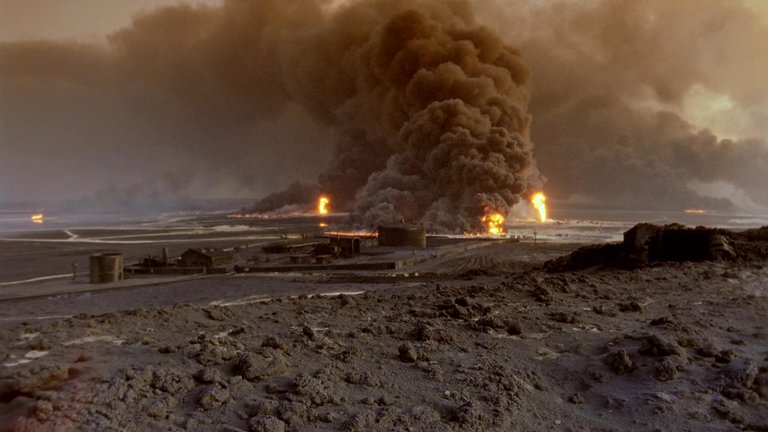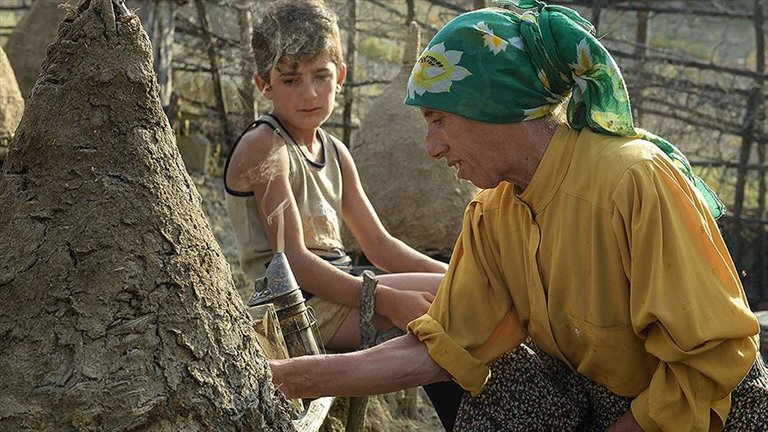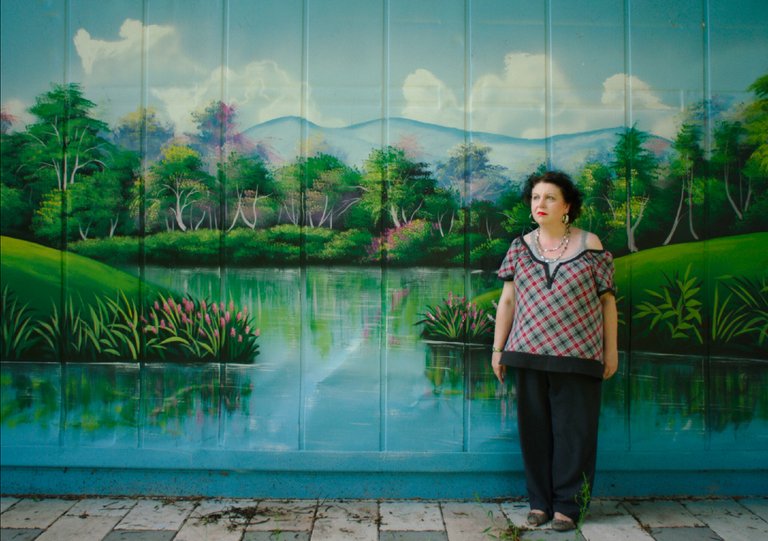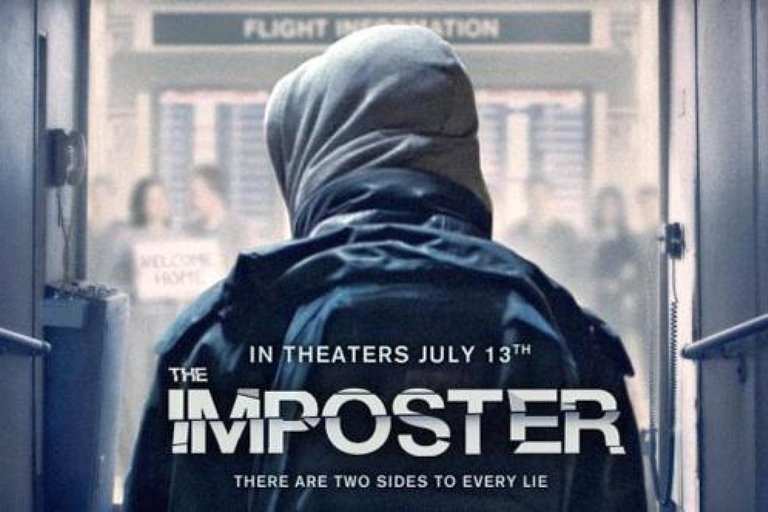If you love watching documentaries, you're in for a treat. The following list includes a few of my favorite documentaries: Lessons of Darkness, Blue Planet, and Honeyland. Check out my other favorites and give them a try! The list is not exhaustive, so please share your favorite ones. Here is the link to the contest: https://www.cinetv.blog/@cinetv/cinetv-contest-9-your-favorite-documentarys
Lessons of Darkness
I watched Lessons of Darkness on February 14. This film was part of the See it Big! Documentary series co-programmed by Reverse Shot and the Museum of the Moving Image. It is one of my favorite documentaries, and you should too! For one thing, it's breathtakingly beautiful. But more importantly, it has an underlying message: history is not the final authority on any subject.
In this documentary film, Werner Herzog narrates a story about a city that has been devastated by war. There are fires and man-made volcanoes that continue to rage, despite the aliens' best efforts. Black smoke storms circle the planet. Lessons of Darkness is a film about fear and tension, but it is not just a sobering report on human behavior.
In my opinion, Herzog's films were not just films about reality, but also about the state of the world. His documentaries often broke boundaries and defied categorization, and "Lessons of Darkness" is no exception. As a film critic, I'm glad to see Herzog's approach to documentaries. It's refreshing to see a filmmaker so unapologetically pursuing the goal of telling the truth.
Honeyland
Honeyland looks like a dramatic feature film set during the Middle Ages. The film follows Hatidze Muratova, a young man who practices the ancient art of beekeeping. He lives in a small house in the countryside, where his mother is ailing, and he makes his only income by selling honey to local merchants. The money he makes from selling the honey is used to buy packaged hair dye.
Honeyland is a faith-based film with an implicit moral. It is a metaphor for late capitalism, and yet the filmmakers don't delve into that, instead letting us walk in the shoes of both sides. The film is a tense, gripping film that I recommend watching at least once. I don't think I'll ever get tired of it.
This 90-minute documentary is available on Hulu, Amazon Prime, YouTube, and Google Play. I would recommend watching it on your device if you haven't seen it yet. Honeyland is such a vividly filmed documentary that it will transport you to another time and culture. If you don't have Hulu, this is a great way to watch it. It will make you feel like you are part of the family.
Honeyland follows the life of a beekeeper in the Macedonian countryside. She lives in a crumbling stone house, cares for her bedridden mother, and sells her honey in Skopje. The film is beautifully color-schemed and artfully filmed, and you will fall in love with the characters. If you love bees, you'll enjoy this film!
Hoop Dreams
Hoop Dreams, the documentary about basketball and its impact on urban America, was originally intended to be a 30-minute film to air on PBS. However, it was later made into a three-hour feature documentary. Much like Ken Burns' documentary, "Baseball," Hoop Dreams tells the stories of real people who play basketball and live in poverty in urban America. But unlike Hollywood's fair, the documentary is not a fictional story; instead, it's a real-life exposé that brings viewers to the nitty-gritty of life in the inner city.
The film, directed by Steve James, started out as a 30 minute PBS documentary but soon grew into something much bigger. The filmmakers focused on the lives of two teenagers, William Gates and Arthur Agee, from the ghetto to the NBA. Both players had idols who influenced them to pursue basketball. They were both determined to become professional basketball players and the documentary reveals how hard it was for them to break through.
Despite the many themes in the movie, the real focus of Hoop Dreams lies in the two teenage boys and their families. While both boys are dedicated to basketball, the film shows the broader picture as well. It shows that there are very few options available for those who do not pursue their basketball dreams. While the documentary does try to convey a message of hope, it is not able to do this effectively because it focuses too closely on the lives of two young men.
Blue Planet
The first episode of Blue Planet reveals amazing life forms and fascinating defense mechanisms of animals. The second episode of Blue Planet takes a similar path and uses state-of-the-art technology to better understand the effects of climate change on fragile ecosystems. In contrast, Frozen Planet is about the polar regions of the Earth. It's made up of seven episodes narrated by David Attenborough. It explores volcanoes and gets up close and personal with animals that can't be seen on land.
Another episode is titled Dolphin Tale and is another one of my favorites. In this episode, a dolphin pod was filmed swimming alongside a dive boat, which allowed divers to approach them and capture their beauty. This documentary won special acclaim for its efforts to raise awareness for the destruction of coral reefs. It was also one of the first to explore the tidal pools and coral seas of the ocean, and viewers were able to witness the destruction of one third of the world's coral reefs.
The second season of the documentary series uses advanced technologies to go deeper into the oceans. The images of the marine world are breathtaking and the series narrated by Sir David Attenborough. The Blue Planet is an impressive piece of filmmaking. It was released at the turn of the century and has garnered numerous Emmys and BAFTAs. Once again, Sir David Attenborough is the narrator, which has his own distinct style of narration.
Some Kind of Heaven
"Some Kind of Heaven" premiered at the 2020 Sundance Film Festival and has since become widely available. Produced by Los Angeles Media Fund, Darren Aronofsky, and The New York Times, the film follows the lives of those whose worlds were shattered by the death of their loved ones. Its director, Josh Oppenheim, was the first recipient of the Sundance Ignite Fellowship, a program for young filmmakers.
The film's melodramatic storytelling is tempered by its unflinching honesty. Despite the voyeuristic camera work and the film's thriller-like score, Some Kind of Heaven is a profoundly moving movie about love and loss. The movie's melodrama, stunning montage, and unflinching honesty make it a film that should be watched by all cinephiles.
The film is not available on Netflix or other streaming services, so if you're interested in seeing it, you'll have to find a place where you can buy it. It is also not currently available for free on Netflix, but it is available digitally for rent. However, despite its high MetaCritic score, I'm glad to report that it has received mostly positive reviews and is currently available to rent or buy.
The documentary Some Kind of Heaven is one of my favorite films. While it doesn't explore the sociology of elderly stepfords, it does investigate the lives of retirees in The Villages, Florida. The Villages has become a hotbed of political tension just months after the film was released, as Dear Leader Tr*mp tweeted a video of one of his devotees yelling "White power." This documentary is not for the politically correct or the ideologically virulent types.
Impostor
The Impostor is a fascinating documentary about a French chameleon who posed as a missing child in order to deceive his family. The film tells the story of Frederic Bourdin, who had black hair and brown eyes, but had the same face as the missing boy. Through his manipulations, he was able to convince his family that he was the real boy. I never thought I'd feel this way about a documentary, but this one has left a lasting impression.
The story of the missing teen boy and his family is the subject of this film, and the film is beautifully shot. I've always been intrigued by the story of a missing person, so it was not surprising to learn that a 23-year-old French con artist posed as him and lived amongst the family. The style of the film is reminiscent of a TV crime drama, and the interviews with the family members help to tell the story.
I found the film to be compelling and thought-provoking. I cried throughout the film, and it triggered many questions in my mind. In this way, it's a great film to watch for the sheer curiosity of a good documentary. The film also gives me a new appreciation for a prestigious award-winning documentary. It also helps to understand why this particular documentary is so influential, as it highlights the power of media.
CineTV Contest #9- Your Favorite Documentary(s): https://www.cinetv.blog/@cinetv/cinetv-contest-9-your-favorite-documentarys
Posted using CineTV






Thank you for your Cine TV Contest entry! You definitely like documentaries. I haven't seen any of these but I really appreciate your reviews of these films. Thanks again!
Thanks so much! I am glad you like my entry.
Posted using CineTV